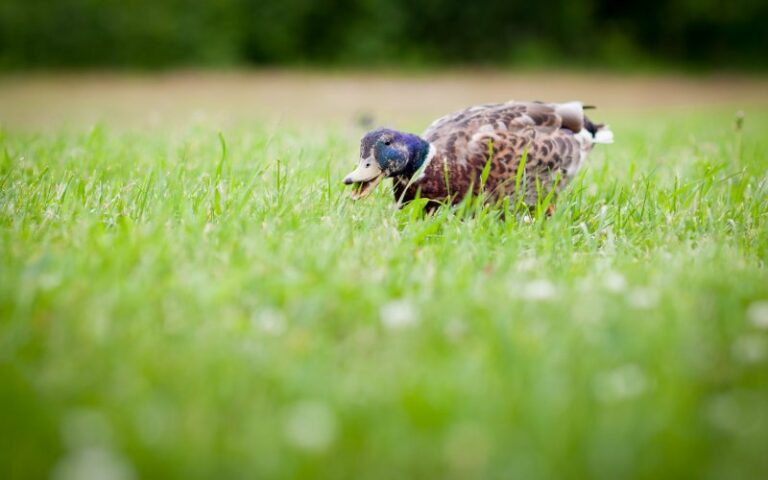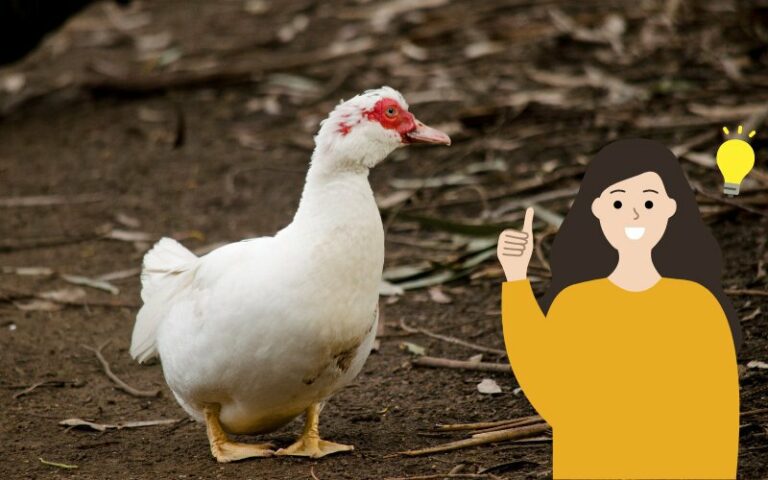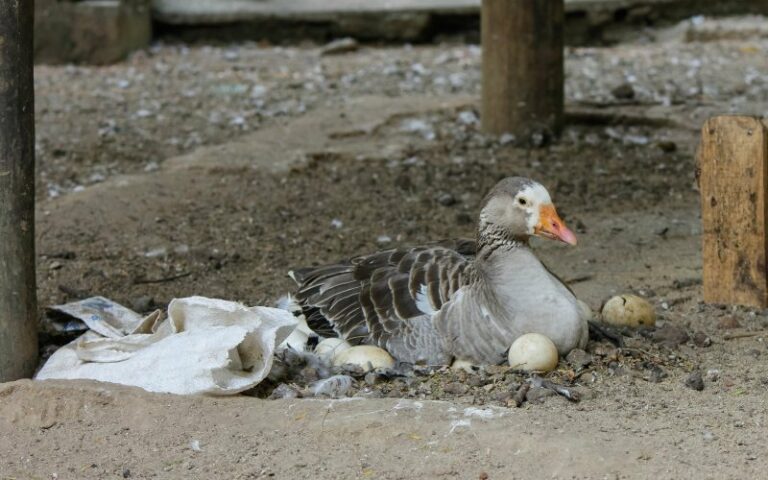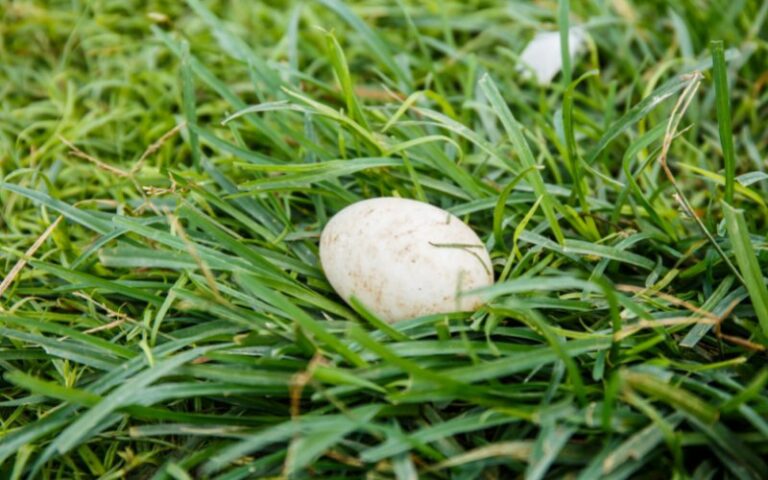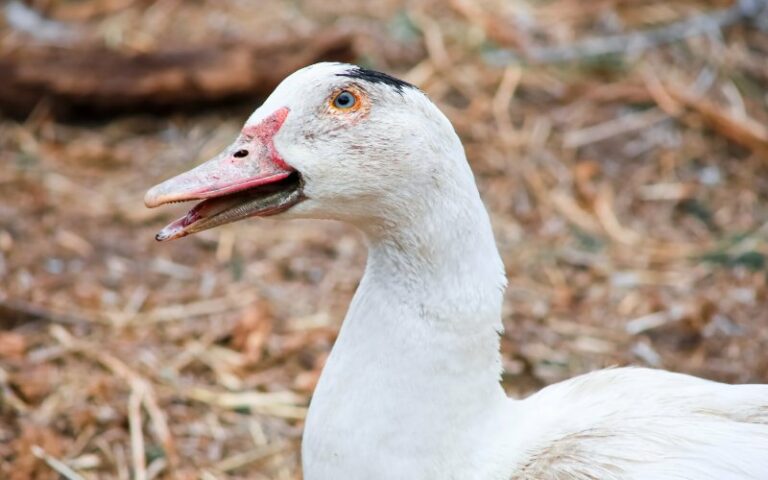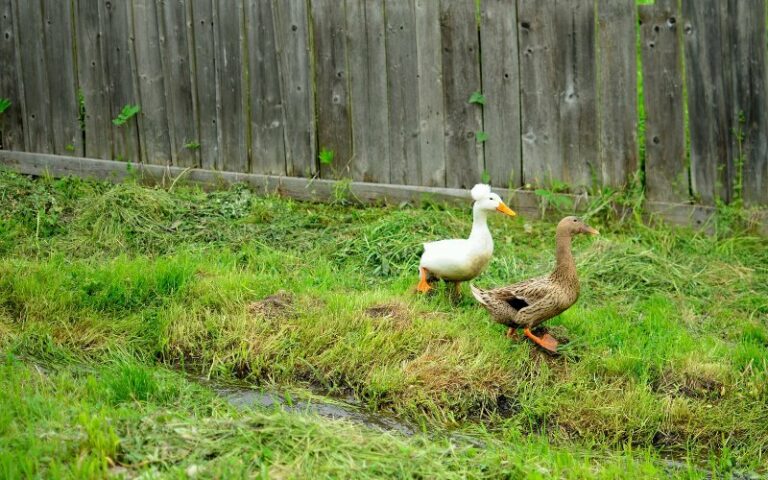Why Are My Ducks Attacking My Chickens? (Possible Causes + Solutions)
Keeping a mixed flock maximizes space, and it’s a great idea for small backyards. Poultry, including ducks and chickens, tend to live a tranquil life and aren’t prone to fights – but that doesn’t mean that fights can’t or won’t break out among your flock.
It’s disconcerting to watch usually peaceful and friendly birds become aggressive and violent. But, chances are, a small adjustment or two to their environment will solve the problem. In my experience, reasons for ducks and chickens fighting also cause aggression in same-species flocks. Don’t jump to the conclusion that keeping various species of poultry in the same enclosure causes fighting – because that probably isn’t the main reason.
Duck attacks might seem uncalled for or arbitrary, but from ducks’ perspectives, they’re simply trying to tell you that something’s wrong. Here are some common reasons for ducks being aggressive towards chickens.
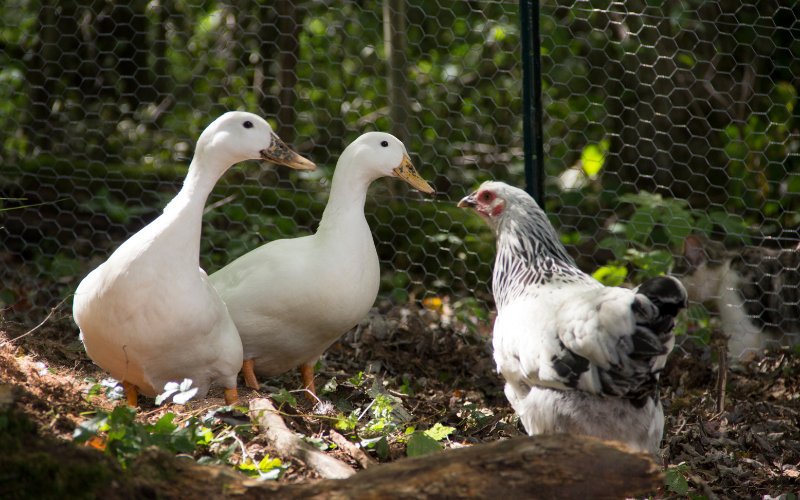
Why Are My Ducks Attacking My Chickens (The Short Explanation)
Ducks aren’t naturally aggressive birds, but when a duck gets into a fight with a chicken, the duck will probably win. For the safety of your chickens, you’ll want to mitigate aggression as much as possible. Male ducks are usually the aggressors and may fight or harm chickens because of superiority issues, discomfort, or mating confusion.
6 Possible Reasons Why Your Ducks May Attack Your Chickens
As a poultry owner, it’s best to learn to interpret what aggressive duck behavior really means. It almost always points to a deeper issue, an issue that you likely are able to solve.
Superiority
Fighting almost always occurs between male birds, whether it’s a fight between two roosters, two drakes, or a drake and a rooster. When they live together, birds naturally establish a hierarchy through conflict. However, having both roosters and drakes in the same coop complicates things, and unnecessary or excessive fighting could result.
Mating Confusion
Mating causes more problems. If you decide to include drakes or roosters in your flock, you may notice some mating confusion – particularly drakes trying to mate with hens. This can be harmful to hens, and it’s probably what’s going on if you notice a drake attacking your hens for no apparent reason.
Bright Light
Not being ducks, it’s hard for us to recognize when a duck is uncomfortable or understand why that could cause aggression. However, excessive light can irritate them and cause fights.
I’ve used heat lamps countless times to keep chicks and ducklings warm, and while that’s an effective way to provide a heat source, it’s important to make sure that birds get a break from light. Bright light can actually cause hostility among poultry.
Overheating
This problem might be a little more relatable for us humans – discomfort due to heat tends to also make us disagreeable. Ducks are used to living outdoors, but make sure they have the tools they need to stay cool. Water is important – and not just water for drinking. A duck pond or splash zone of some sort is essential for ducks.
Unfamiliarity
You might have noticed that duck aggression only started when birds were added or removed from the flock. Try to avoid mixing a flock up as it can cause a lot of stress. Birds need an established hierarchy, and the members of a flock change, they have to establish a new hierarchy – which almost always requires conflict.
Inadequate Nutrition
If a duck’s nutritional needs aren’t being met, it’s more likely to become aggressive because it feels that other birds are a threat to its own well-being. In this situation, birds are likely to revert back to an instinctual desire to survive – and if there’s not enough food, all the other birds in the coop become enemies.
What to Do If Your Ducks Are Attacking Your Chickens (5 Things to Try)
Now that you have an idea of what’s going on, here are a few tips that might fix flock conflict issues.
Prevent Conflict By Researching Breeds
If you don’t yet own a mixed flock but you’re planning on housing your ducks and chickens in the same area, be sure to research your duck breeds. Find ducks that are calmer and less prone to aggression. Good options are Pekins, Saxonies, and Appleyards.
Let Your Flock Grow Up Together
Ducks and chickens will naturally establish a little society as they grow up together. However, if an adult duck is used to being in charge, and it suddenly has to live with another drake or a rooster who also believes it’s in charge, fights will inevitably occur.
The solution is to purchase birds when they’re young and let them grow up in the same environment. Smaller squabbles will probably break out as they figure out who’s in charge, but they aren’t likely to injure other ducks or chickens.
Isolate Problem Birds
However, it’s not always possible for a flock to grow up together. Maybe you don’t have the equipment necessary for raising young birds, or a neighbor gave you a few birds and you need to integrate them into your flock.
Isolation is usually only a short-term fix, but if chickens or other ducks are receiving injuries from duck aggression, you should remove aggressive ducks immediately. In the long term, you may need to permanently keep aggressive birds in a separate enclosure or get rid of them.
Only isolate birds for a short time, as they’re social creatures that need to be around other birds. Try to discover the deeper cause of the conflict and see if it’s possible to put them back in the flock.
Have a Good Male-to-Female Ratio
I’ve found that, if you’re looking for a surefire way to avoid conflict within your flock, you should avoid male birds altogether. That doesn’t mean that fights are certain to occur if you own a few drakes or roosters, but male birds make conflict more likely.
If you do choose to include males in your flock, remember that too few female ducks or hens can cause mating confusion and aggression among males. Having more than one male duck or chicken in a flock makes aggression exponentially more likely, but it’s not impossible to avoid.
Be sure to have at least 10 hens per rooster and five to eight female ducks per drake to reduce chances of conflict and mating confusion.
Make Sure Their Needs Are Met
Duck aggression could be a sign that something’s wrong in your flock’s environment. Hunger, thirst, heat, or bright light could be causing fights to break out.
Hungry ducks and chickens will scramble for the feeder when you fill it, and fights may occur there. They’ll also quickly finish the feed you give them. Using the factors of breed, age, and size, figure out how much food your flock needs – and remember that ducks and chickens grow fast. They might need more feed than they needed even a short week or two ago.
Similar fights over water might occur. Ducks don’t just drink water – they also use it to cool off. Have both drinking water and a splash zone available at all times. I know it’s difficult to keep ducks waterers full of water, and you might have to get creative, but it is important for ducks’ well-being. Consider adding a duck pond to your flock’s enclosure or environment.
If you’re using heat lamps, purchase lamps with red or infrared light. Turn the lights off for a few hours each day if possible, or simply make sure that there’s an area in the coop where birds can temporarily get away from the light.

